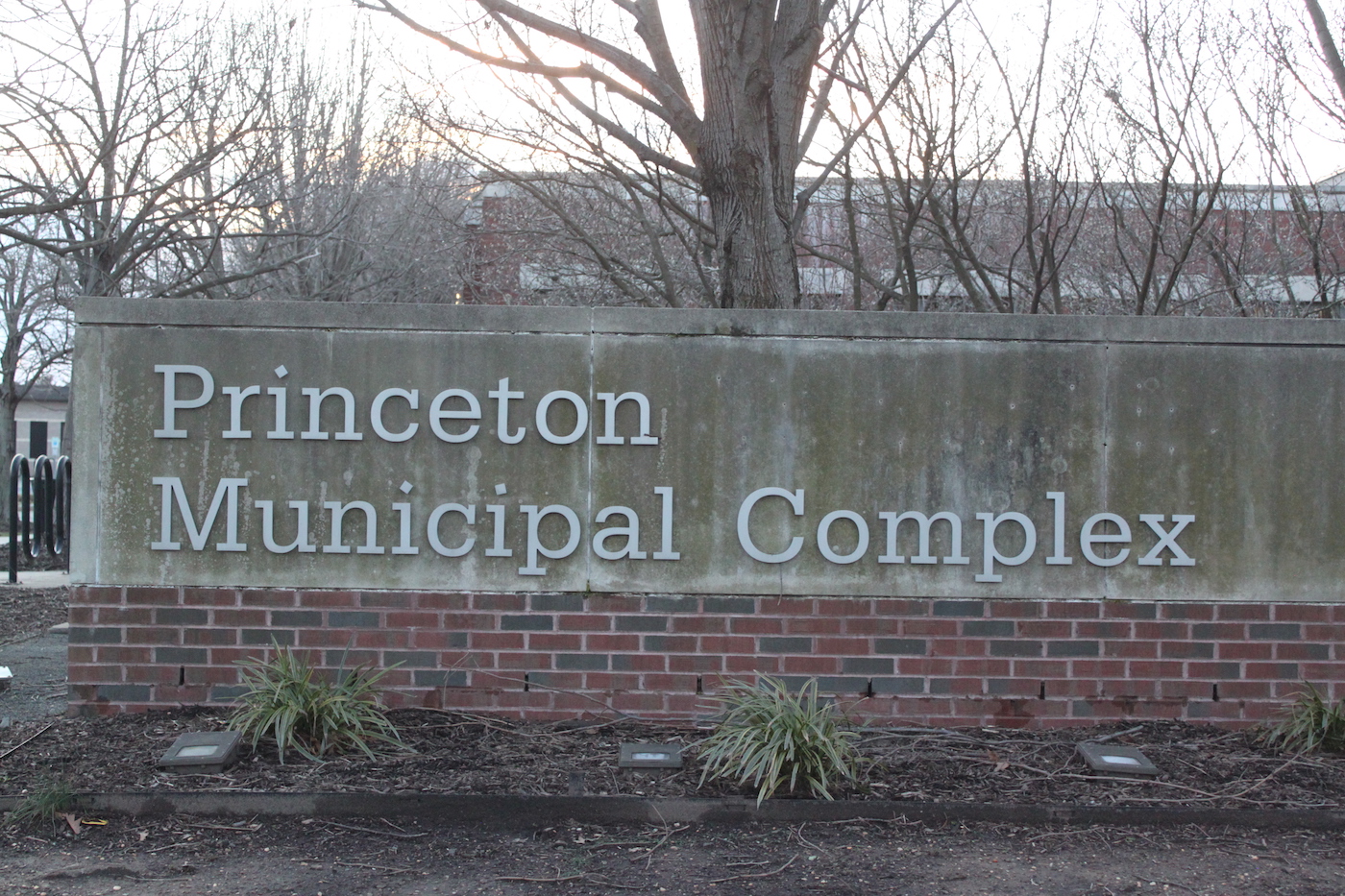Princeton Councilwomen Michelle Pirone Lambros and Mia Sacks, both Democrats, were sworn into office for their second terms at the Princeton Council’s Jan. 5 reorganization meeting at the Witherspoon Hall municipal building.
State Sen. Andrew Zwicker (D-12) administered the oath of office to Pirone Lambros and Sacks. The term is for three years.
Once the full six-member Princeton Council was seated at the dais, Sacks was chosen to serve as Council president. She was sworn into office by Assemblywoman Sadaf Jaffer (D-12).
The Princeton Council moved swiftly through nearly three dozen resolutions that ranged from appointing its professional staff to making appointments to its advisory boards, committees and commissions. The Council also set its 2023 meeting calendar.
Mayor Mark Freda said the 2023 reorganization meeting marks the 10th anniversary of the first meeting of the newly-constituted governing body of the consolidated Princeton. The former Princeton Borough and Princeton Township merged to become one town in 2012.
Freda spoke about the “high level of engagement” between the Princeton Council, the municipal staff and the people who live, work or own businesses in town.
“Our ability and willingness to listen to each other and to try to understand each other’s viewpoints is part of the foundation that makes our system work so well,” Freda said.
Discussions on any item are really business discussions, so it is “OK” to be open, honest and to even disagree with each other, Freda said. Disagreement is a reflection of differing personalities, backgrounds, experiences, cultures and the amount of information one has a on a specific topic, he said.
“Taking the time to understand why we disagree is a good habit. It can help us to move forward. Easy to say this, but not always easy to practice it, but trying to practice it consistently is what I hope to do,” Freda said.
Sacks said in her remarks that serving on the Princeton Council has been equally challenging and rewarding. She said she is grateful for the opportunity to help shape her hometown, particularly focusing on planning for the town’s future.
The Princeton Council expects to take the final steps to implement its housing settlement to provide its fair share of affordable housing, Sacks said. The Council, she said, is “aware of the historic connection between housing and race, and New Jersey remains one of the most segregated states in the country,”
Signs proclaiming Princeton is a welcoming community dot the lawns of residents, Sacks said. Putting those words into practice means redoubling the town’s commitment to eliminate exclusionary zoning and housing patterns that create barriers for lower income households and minorities from living in safe, affordable homes and neighborhoods, she said.
Sacks said that as the Princeton Council’s liaison to the town’s Public Transit Committee, she helped to transition the town’s free bus service to a new model that will enable the town to create greater efficiencies by working with Princeton University.
“We are working to expand routes to our new affordable housing sites in ways that take into account the needs of working families – especially those with after-school transportation needs,” she said.
Sacks said that she, Pirone Lambros and Councilwoman Eve Niedergang are renegotiating the voluntary contribution agreement with Princeton University, in which the university makes a financial donation to the town. It is hoped that the result will be “an agreement that strengthens a shared interest in enhancing the town’s fiscal health, diverse population and thriving business district,” she said.
Pirone Lambros, in her remarks, said that while there have been some significant accomplishments in the past three years, “there is still so much more to do.” It is an honor to continue to serve on the Princeton Council, she said.
“My work on the Council reaches back to my historic roots in our town,” Pirone Lambros said. “I remain committed to addressing (housing) affordability, which is causing the evaporation of socio-economic diversity by pricing out lower- and middle-income residents.
“I am also focused on driving economic redevelopment, as I believe these goals are synergistic. Economic growth makes sense financially. The health of our commercial tax base is critical to help offset our residential tax burden,” she said.
Pirone Lambros, who chairs the Princeton Council’s Finance Committee, said the goal is to find ways to trim the budget while also maintaining municipal services. At the same time, “we are looking at ways that our municipal properties could better serve the town,” she said.
The Princeton Council has undertaken a facilities analysis that will help guide decisions on how to use municipally-owned properties, she said. It may include how to consolidate properties and determine those that could become ratables. Municipally-owned properties are tax-exempt.
“To better serve the needs of our residents, we are exploring options for a community center. We are also investing more in our parks and recreational amenities,” Pirone Lambros said.
The town has launched a planning process for Community Park South to improve the park’s facilities and to better serve residents’ needs for youth and adult recreation, she said. A similar study is planned for Grover Park, near the Princeton Shopping Center, she said.

